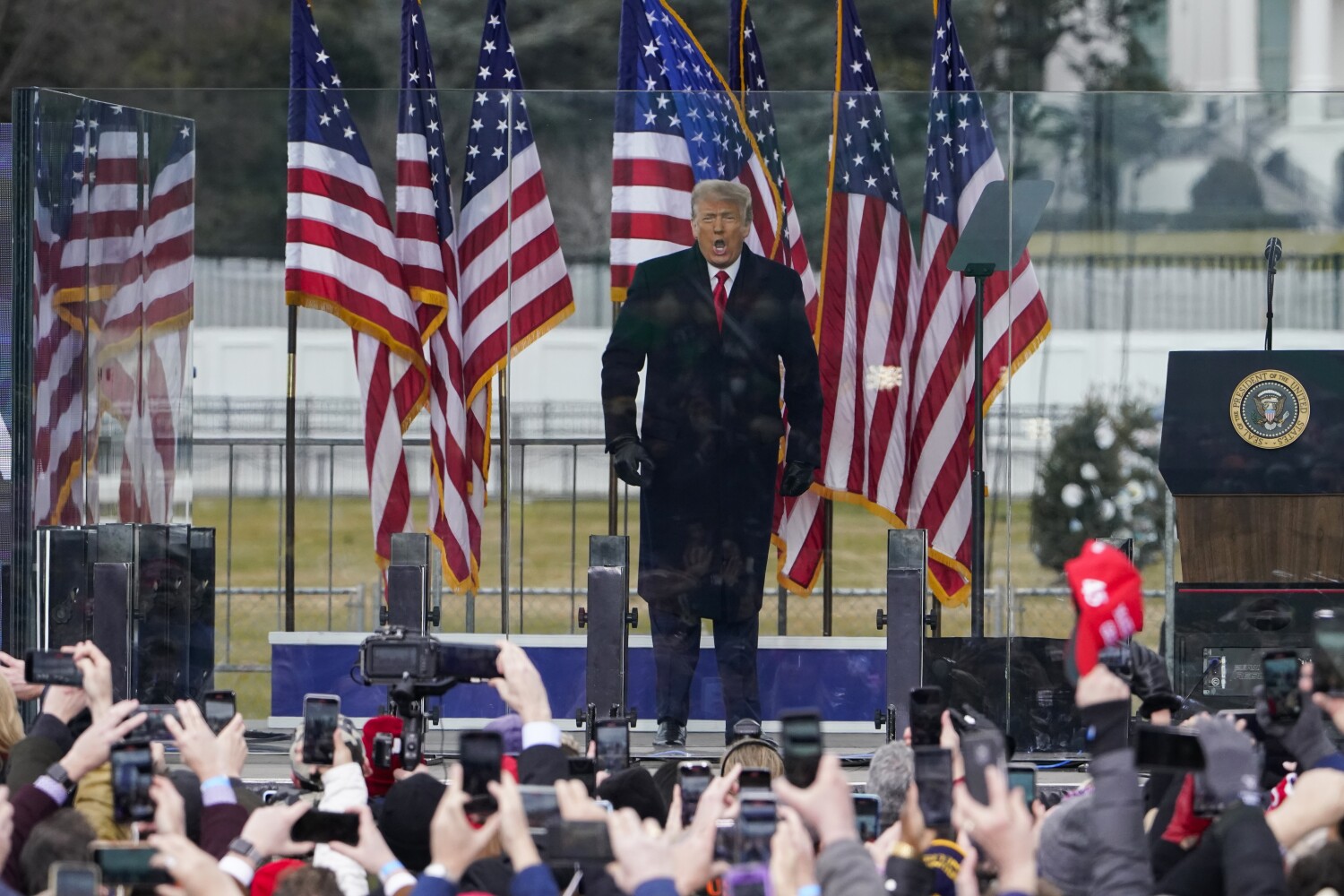Column: Do Trump’s Jan. 6 sins of omission and fee make him criminally liable?

Rep. Bennie Thompson, the Democratic chair of the Home Choose Committee investigating the Jan. 6 Capitol assault, has made it clear that the panel is concentrated intently on former President Trump’s three-plus hours of scandalous silence because the rebel raged.
Commentators have advised that as odious as Trump’s silence might have been, it does little to floor a felony case as a result of felony regulation punishes individuals for motion reasonably than inaction.
However that precept has essential exceptions that apply exactly to Jan. 6 and Trump. Past that, as extra proof is revealed, it’s more and more apparent that the previous president did act — by encouraging the disruption of the election certification. All in all, a felony referral to the Division of Justice is an actual risk (whether or not Atty. Gen. Merrick Garland pursues it’s one other matter).
Right here’s how the action-inaction distinction operates: Felony legal responsibility typically requires the mix of intent and motion, which is why omitting to behave usually doesn’t land you in jail. However when a defendant has a authorized responsibility to behave and doesn’t, the precept offers floor.
Say a lifeguard neglects their responsibility to avoid wasting a floundering swimmer or a father refuses to assist his household. In these conditions, the omission is the motion required to floor a felony cost. (It nonetheless should coincide with a culpable intent, or psychological state; extra on that beneath.)
Not surprisingly, there is no such thing as a specific case regulation on whether or not the Structure’s “take care” clause — which instructs the president to “take Care that the Legal guidelines be faithfully executed” — offers rise to a authorized responsibility to do extra than simply stand by because the Structure is trampled and members of Congress and a peaceable switch of energy are endangered. However it’s arduous to see the way it could possibly be in any other case.
Inaction can be no safety from felony legal responsibility when its reverse is critical to stop harm brought on by earlier conduct, even harmless conduct. A driver who hits a pedestrian, even when the motive force will not be at fault, can’t simply go away the scene. Or, should you occur to have poison sitting across the kitchen that appears like sugar, you’ll be able to’t hold quiet as your good friend dips into it, considering he’s sweetening his tea. In such cases, omission is once more tantamount to motion; and if completed with the requisite psychological state, could be a crime.
In Trump’s case, even when he anticipated merely a peaceable rally on the Capitol on Jan. 6, his position in setting a lethal insurgency in movement arguably means he couldn’t legally decline to intervene as if he have been simply an unintentional bystander.
Trump’s felony legal responsibility isn’t solely depending on the truth that inaction can generally break the regulation. He’s weak to an much more potent cost — aiding and abetting felony habits.
The federal felony code considers anybody who induces, or aids and abets, a criminal offense to be no totally different from the one who pulls a set off, or for our functions, storms the U.S. Capitol. If you happen to help and abet somebody who executes a criminal offense, and should you possess the requisite psychological state — basically a want for the offense to happen — you too are liable, as a principal defendant.
In Trump’s case, the indictment sheet would cite not solely Title 18, U.S. Code, Part 2, which proscribes aiding and abetting a criminal offense, but in addition Part 1512, which makes it unlawful to impede or impede (or to attempt to impede or impede) any official continuing — together with Congress’ certification of a presidential election.
Trump would attempt to contest that certification matches the which means of an official continuing within the felony code, however a current ruling from a Trump-appointed decide confirms that it does. Neither is there any actual query however that the frothing Capitol rioters have been looking for to impede or impede the tallying of the vote on Jan. 6.
So the query for a jury can be, did the president encourage the Jan. 6 mob to assault, and did he do it with the intent that Congress be impeded?
Current proof rising from the Home investigation is damning. Whereas Trump supporters raged and members of Congress cowered, the president’s closest advisors pleaded with him to name off the canines — however he did nothing for greater than three hours. His silence might have buoyed the rioters, lots of whom declared they have been doing Trump’s bidding.
Had Trump’s intent been merely that the Jan. 6 mob make its 1st Modification-protected views in regards to the election identified, then he wouldn’t have refused to behave when the train turned so fully sinister. He would have jumped to place issues again on his desired observe.
However he didn’t, and by some accounts he was jubilant that the certification course of had been as a minimum interrupted. He needled Home Minority Chief Kevin McCarthy (R-Bakersfield): “I suppose these persons are extra upset in regards to the election than you might be.”
Doing nothing may appear benign or a minimum of defensible in most chaotic conditions. However the extra we discover out about Trump’s inaction (and his actions) associated to Jan. 6, the extra his potential culpability turns into clear. His omissions as soon as the rioting started weren’t simply irresponsible and despicable; they have been lethal.
And are very more likely to result in a felony referral from Congress.


